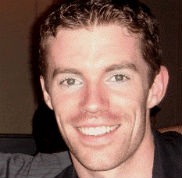The Strauss-Kahn Affair: Implications for the 2012 Presidential Elections
On Sunday Dominique Strauss-Kahn was accused of attempted rape in New York. The scandal has shocked the French public and is likely to be the downfall of one of the leading figures of the country’s political elite. On a larger scale, the controversy has important implications for next year’s presidential elections.
A constant presence on the French political scene since the early 1980s, Dominique Strauss-Kahn has long been a key player within the upper echelons of the French Socialist party. A shrewd politician with a potent blend of charisma and business acumen, Strauss-Kahn is also an experienced statesman – he was appointed minister for trade and industry by Mitterrand in 1991 and served as minister for finance and economic affairs under Jospin in 1997.
Of course, his political rise has not been without problems. In 1999, Strauss-Kahn was forced to resign over corruption charges stemming from his time as a consultant in the private sector. Cleared of those charges, he made a comeback as a député in 2002 only to lose in his bid for the Socialist party nomination in 2006.
Although disappointed in his bid for the presidency in 2006, Strauss-Kahn remained a powerful figure within the Socialist party and the threat of his political influence was recognised in President Sarkozy’s support of his appointment as head of the IMF in 2007. Ironically, it was his work at the IMF that reinvigorated Strauss-Kahn’s political career in France. Credited with renewing the power of the IMF through a series of organisational reforms, Strauss-Kahn used the global financial crisis to his advantage and regained popularity in France where he was treated well by the media.
However, while recent years have seen him gain considerable power and influence on the world stage, Strauss-Kahn has not lost sight of France and in recent months a bid for the Socialist nomination for next year’s presidential race has been strongly hinted at in the media. Although clearly not an exact science, a series of French polls had shown Strauss-Kahn to be a popular figure with the electorate.
So with Strauss-Kahn spectacularly removed, what shape will the presidential race take? The immediate response on the part of many commentators has been to highlight the boost that Nicolas Sarkozy will surely receive; Dominique Strauss-Kahn was regarded by many as the strongest potential candidate on the left. And with the current president languishing in the polls, an injection of support is badly needed. However, this analysis is superficial and misleading. Sarkozy’s drop in the polls is largely his own doing and reflects unpopular policy decisions as well as a lack of faith in his inconstant political ideology.
Marine Le Pen and her new-look Front National have also been singled out as potential beneficiaries of the scandal. This seems more realistic, even if only marginally so, for as Le Pen continues to repackage the party and present a ‘softer’ far right, she may gain support as an alternative to the controversy and scandal that has tainted the old guard of the French political sphere.
But what of the left? What does Strauss-Kahn’s fall mean for the Socialists? With the Socialist election primary rapidly approaching, the party has a number of potential runners. Of these, the three have garnered significant attention in the media: Ségolène Royal, Martine Aubry and Francois Hollande.
A loser in 2007, Royal has a reputation as something of a political lightweight. Her campaign in 2007 was lacklustre and attempted at times to move into the natural territory of the right. The current party leader, Martine Aubry, has been described as France’s answer to Angela Merkel and is best known for implementing the 35-hour working week. However, Aubry does not have the support of all the Socialist factions and lacks charisma.
Former party leader Francois Hollande is perhaps the most intriguing of the three. In recent months his image has undergone a radical overhaul with the goal of producing the more determined and polished image expected of a presidential candidate. Moreover, the connections forged over Hollande’s ten-year reign as party leader means that he enjoys strong support within the party. And while an IFOP survey carried out last week for the Journal du Dimanche newspaper found that Strauss-Kahn would have led a presidential first round with 26 percent of the vote, the same survey claimed that if Hollande were the left's candidate instead of Strauss-Kahn, the first-round would be a dead heat.
However, while each of the potential candidates presents a credible threat to Sarkozy’s aspirations to a second term in office, none have shown an ability to inspire the electorate. Dominique Strauss-Kahn undoubtedly led the pack in terms of charisma and public appeal, even if his private life has long been his Achilles’ heel. Moreover, the division within the party means that any challenge for the presidency is diluted and weakened from the start.
Ultimately, what the Socialists really need is unity, the ability to pull together and focus their considerable strength on developing sound and credible policies that can be channelled through a single representative candidate. Of course, this is probably too much to ask but at least Strauss-Kahn’s premature exit has narrowed the field.



4 Comments
Post new comment